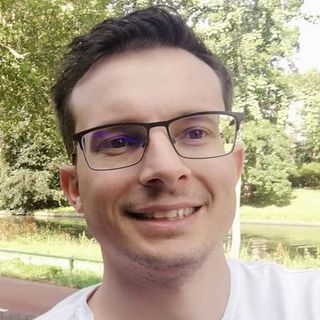Q&A with Oscar Baruffa, Sustainability Professional and Data Specialist
By Alan Hylands

My wife thinks I spend too much time on Twitter. I tell her that it’s not all football gossip and comedy memes but it’s a hard sell sometimes. What I mainly use Twitter for though is keeping up to date with what other data professionals are doing in their day-to-day work.
And that’s where I happened upon my latest interview guest. Oscar Baruffa is a Data Specialist at a non-profit based in Utrecht in The Netherlands. When he started this new job back in June 2019, Oscar tweeted a great stream of daily updates on his progress.
So I caught up with him this week to get a little more background and see how he approaches his own data career.
Welcome to Analysts Assemble, Oscar Baruffa.
Tell us a bit about yourself, how did you get into the data space and what does your data journey look like so far?
All my roles have had a strong element of interpreting data and making commercial decisions based on that information. I started out doing Mechanical Engineering, moving onto sustainability auditing, then running a national recycling programme through to my current role as a Data Specialist.
I realized the other day that my two most transferable skills are:
- Interpreting and communicating data
- Project management.
What’s a typical day look like for you in your current data role? Which tools and languages do you use? Big team/small team/lone wolf? Remote/office based/co-working space?
At the moment I work 4 days in the office and 1 day remote in a medium-sized company. In my previous role I was fully remote for many years.
I am sort-of a lone data person in that I have a data colleague who is only part-time on my team and part-time on another.
My aim is to use R a lot more for some of the work that I do, and some will indeed need it especially for wrangling many spreadsheets. I use Excel a whole lot and some Tableau.
Tableau is actually great for doing “live” analysis with a non-technical audience because they can follow along and see how you’re building the analysis and ask questions on the fly.
It’s quite fun to do 😃.
You are very active on Twitter. How important do you think it is for data professionals, at all stages of their career, to share publicly what they are doing and learning?
I think you can have a long and rewarding career without any social media presence or sharing what you’ve learnt.
The benefit I see is that it certainly enriches my daily work by being aware of what current thinking and trends are out there and I learn quite a lot on a daily basis. I think it is perhaps most useful to learn and share publicly when you are a solo data professional and don’t have peers to bounce ideas off of.
LinkedIn is really good for keeping tabs on where people are moving to throughout their career. I think its worth keeping a decent profile maintained for that purpose.
Where do you see your own data career going next? Building on your technical skills or moving into a more management-based role?
I’m focusing on building my technical skill as I have spent quite a few years moving more to management-based role. I’d say probably 90% of my time in recent years has been management-focused.
If you had a list of “best-kept-secrets” (websites, books, coaches) that have helped you, which would you recommend?
There’s quite a few but I think a commencement speech by Neil Gaiman some years back, titled “Make Good Art”, is really fantastic for anyone creating anything. Especially if you feel that there are already tonnes of blog posts/tutorials/books on a subject and that you have nothing to add.
It’s a really good perspective on why to create things and which projects and roles to choose in life.
What is the number one piece of advice you give to aspiring data scientists?
Remember that data is a tool for decision making, but don’t rely on it as the sole means to make decisions. When interacting with others (clients, customers, execs, peers), they will have a lot of considerations (data points 😃 ) that are hidden from you.
Your data and insights are a piece of the puzzle.
Where can readers find you online?
The best places these days are:
- Twitter - @oscarbaruffa for more general conversation: https://twitter.com/OscarBaruffa
- Newsletter for updates about my side projects in R: https://tinyletter.com/OscarBaruffa - the latest project is a book about Twitter for R programmers 😄
- LinkedIn if you want to connect and keep in touch that way: https://linkedin.com/in/oscarbaruffa/
- Youtube - my YouTube channel is called Other People’s RStats
- My blog - OscarBaruffa.com